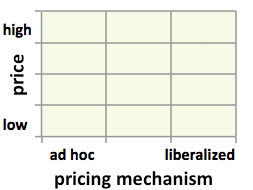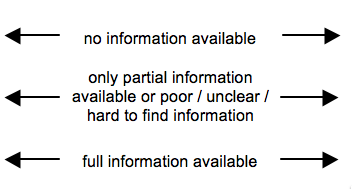Fuel Prices Bangladesh
Part of: GIZ International Fuel Price database
Also see: Bangladesh Energy Situation
Fuel Pricing Policies
| Local Currency: | BDT |
| Exchange Rate: | 78.02
|
| Last Update: | 2013/05/15 |
"Pricing policy: Fuel prices are controlled by government and not adjusted regularly. Prices were raised several times in 2011, but were not adjusted between Dec 30, 2011 and Jan 4, 2013. In Mar 2012, the price of diesel needed to rise by another 45% to break even. IMF reported in Mar 2012 that government was expected to adopt an automatic adjustment formula by December 2012, which would ensure full pass-through of changes in international prices. Government raised fuel prices by up to 11% in Jan 2013. Even after the Jan 2013 price increases, diesel and kerosene were reported to be suffering from under-recoveries of about Tk 12 (US$0.15)/liter. The price of LPG in 12.5-kg cylinders sold by Bangladesh Petroleum Corporation (BPC) has not changed since Jun 2009.
Consequences of subsidies: BPC has taken out loans from state-owned commercial banks, received budgetary transfers to cover its operating losses, and relied on banks to provide much of the foreign exchange needed, because delayed budgetary transfers have caused BPC to regularly lack funds to purchase foreign exchange for oil imports. Banks are reluctant to issue letters of credit. An official figure reportedly shows that BPC’s bank liabilities stood at Tk 192 billion ($2.3 billion) in 2012 and Tk 172 billion ($2.3 billion) in 2011. BPC in 2011 negotiated with Malaysia’s national oil company Petronas and the Philippines National Oil Company to extend US$550 million and US$250 million, respectively, on deferred payment for fuel oil for up to one year with minimal interest. Government established a technical committee in January 2012 to monitor closely the finances of BPC to ensure regular budget transfers to cover subsidy-related losses and to enable it to buy foreign exchange from domestic banks to pay for petroleum imports. In 2012, government decided to reduce fuel imports by BPC to save foreign exchange, Bangladesh Power Development Board decided to lower electricity purchases from oil-based power plants to cut costs, 22 of the 29 oil-fired power plants were shut down in early Mar 2012, and Dhaka Electric Supply Company served notice to mills and factories to keep their units shut from 6 P.M. to 6 A.M.
Compensation: Government has been providing cash subsidies to farmers for diesel for irrigation.
Information: BPC posts current fuel prices on its Web site."
(Source: Kojima, Masami. (2013, forthcoming). “Petroleum product pricing and complementary policies:Experience of 65 developing countries since 2009.” Washington DC: World Bank.)
Fuel Prices and Trends
| Gasoline 95 Octane | Diesel | |
|---|---|---|
| in USD* |
|
|
| in Local Currency |
|
|
* benchmark lines: green=US price; grey=price in Spain; red=price of Crude Oil
Fuel Price Composition
Price composition.
No official information available online.
According to sources (http://in.reuters.com/article/2011/05/06/idINIndia-56817120110506), there is a subsidy of 33.44 taka per litre of diesel (~43% of total costs) and 8.2 taka per litre of gasoline (~10% of total costs).
At a Glance
| Regulation-Price-Matrix |
| ||||
 |

|

|

| ||
Sources to the Public
| Type of Information | Web-Link / Source |
|---|---|
| Other Information | http://www.emrd.gov.bd/index.html |
| Other Information | http://www.berc.org.bd/ |
| Other Information | http://www.bpc.gov.bd/ |
| Wholesale Prices | http://www.bpc.gov.bd/contactus.php?id=39 |
Contact
Please find more information on GIZ International Fuel Price Database and http://www.giz.de/fuelprices



















